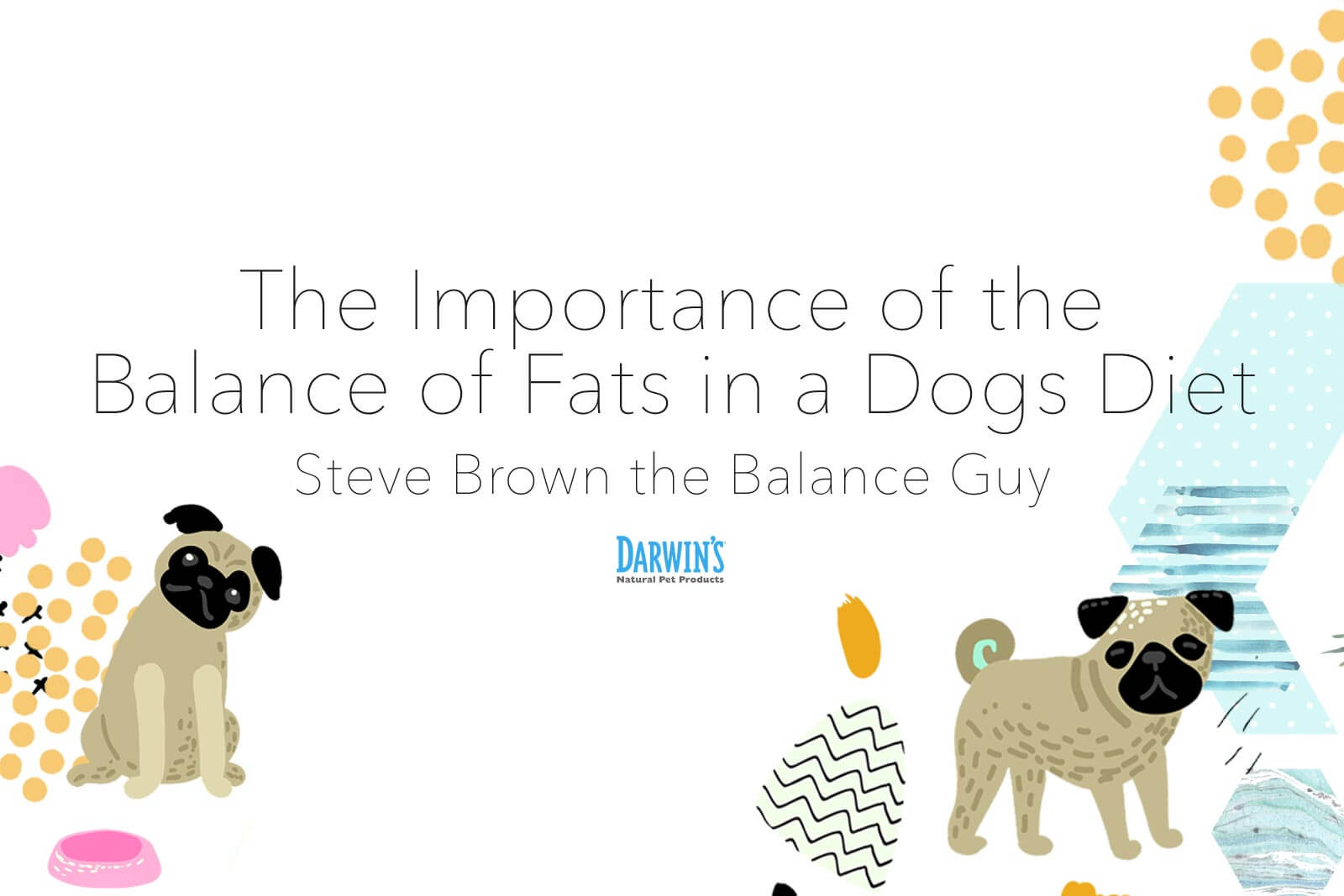The Importance of the Balance of Fats in a Dog’s Diet: Part 1
2/25/15

About the Author: Steve Brown, a consultant for veterinarians on formulating pet foods that meet European and North American guidelines. In 1998, he developed the first AAFCO-compliant, frozen, raw-meat based diet. After developing national distribution, Brown left the company to focus on research and education. He has authored the book Unlocking the Canine Ancestral Diet and co-authored See Spot Live Longer.
In this three part series, I will discuss how to improve your dog’s health, why balanced fats are critical and ways to improve the health of your dog.
More than any other nutrient, a dog becomes the fats she eats. Yet fats are often the least understood aspect of canine diets and therefore few dogs are fed a proper balance of fats.
Fortunately, improving the balance and types of fat that your dog eats is easy, and it’s the best thing you can do to improve the chances that your dog lives a long, healthy, happy life.
Fats are actually a broad category of nutrients, in the same way that minerals and vitamins are. To be at her best now and especially as she ages, your dog needs to consume the proper amounts and balance of each kind of fat, just like she needs to eat the proper amounts and balance of many minerals and vitamins.
Stay tuned to the blog for part two of this series: Why Balanced Fats Are Critical to a Dog’s Health.



